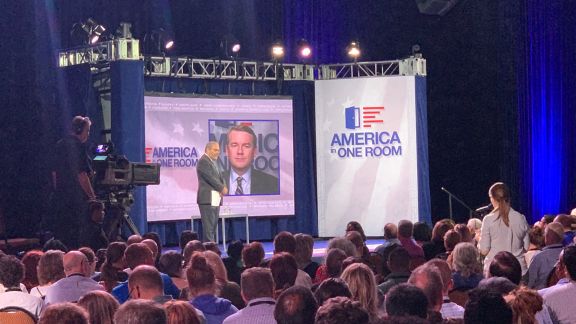Joshua Lerner

Josh joined NORC in 2021 and serves as a senior research methodologist with extensive experience in artificial intelligence (AI), natural language processing (NLP), and program evaluation methods. His expertise spans causal inference, research design, econometrics, and Bayesian statistics, focusing on the intersection of AI/NLP with survey methodology, American politics, political ideology, and institutional economics.
At NORC, Josh has made significant contributions through various initiatives leveraging his NLP and AI expertise. He has been instrumental in developing and running training seminars on NLP methods, which have empowered colleagues to incorporate advanced language processing techniques into their projects. Notable projects include using NLP to automatically parse and evaluate conversational transcripts for the America in One Room deliberative poll. He also helped design the analysis to test the long-run effects of deliberation on voting and polarization. He has played an integral role in helping design and implement the econometric models at the core of several large-scale evaluation projects at NORC, including Global and Professional Direct Contracting Model (GPDC) and ACO Realizing Equity, Access, and Community Health (ACO REACH), as well as Innovations in Sexual Assault Preventions Pilot Program (ISAPPP) and Sexual Assault Prevention and Response Office (SAPRO). He did extensive work helping design the analysis for the Agency for Heatlhcare Research and Quality (AHRQ) Nursing Homes project—including a number of innovations in difference-in-difference modeling. He has also worked at integrating NLP and AI methods in surveys through ongoing work with Amerispeak.
Additionally, Josh has had a career as a political scientist marked by numerous publications in prestigious journals such as the American Political Science Review, Journal of Politics, JAMA: Health Forum, Journal of Survey Statistics and Methodology, and Public Choice, among others. He has taught graduate-level courses on machine learning and NLP at Duke University and led workshops on causal inference/econometrics at Northwestern University Pritzker School of Law. His research has influenced areas like ideology and preference formation in political institutions and the application of NLP in evaluating conversational and legislative processes. His work extends to evaluating causal inference methods through innovative matching techniques, assessing conversational dominance in structured interviews, and applying these insights to studies on the U.S. Congress.
Quick Links
Education
PhD
Duke University
MA
Duke University
BA
University of Chicago
Project Contributions
Publications
-
The Promise & Pitfalls of AI-Augmented Survey Research
Expert View | October 9, 2024
-
“Evaluation of the Global and Professional Direct Contracting Model: Annual Report 2.”
Project Report | January 1, 2024


